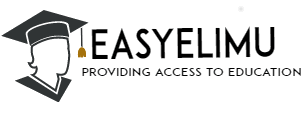| Secondary English & Excelling in English Books Schemes of Work Form 1 Term 3 2020/2021 | ||||||||
| Week | Lesson | Topic | Sub-Topic | Objectives | Learning Activities | Learning Resources | References | Remarks |
| 2 | 1 | LISTENING AND SPEAKING. |
Pronunciation. |
By the end of the lesson, the learner should be able to:
|
Pronunciation Reading. |
Chalkboard. |
|
|
| 2 | STUDY SKILLS | Silent reading skills 1. |
By the end of the lesson, the learner should be able to:
|
Reading. | Chalkboard. |
|
||
| 3, 4 | READING | Comprehension. The Feast |
By the end of the lesson, the learner should be able to:
|
Reading comprehensions. | Pre-reading activities |
|
||
| 5, 6 | GRAMMAR | Types of sentences Exclamative sentences. |
By the end of the lesson, the learner should be able to:
|
Discussion. Writing sentences. | Dictionary. |
|
||
| 3 | 1, 2 | WRITING | Poetry |
By the end of the lesson, the learner should be able to:
|
Discussion. Writing. |
Chalkboard. Sample of good poems. |
|
|
| 3 | LISTENING AND SPEAKING. | Homonyms |
By the end of the lesson, the learner should be able to:
|
Pictures on accident scenes. Newspaper reports on accidents. |
Chalkboard. |
|
||
| 4 | STUDY SKILLS | Silent reading skills |
By the end of the lesson, the learner should be able to:
|
Reading silently. | Chalkboard. |
|
||
| 5, 6 | READING | Comprehension Bukeli's Ordeal |
By the end of the lesson, the learner should be able to:
|
Reading comprehension. |
Chalkboard. |
|
||
| 4 | 1, 2 | GRAMMAR | Types of sentences Imperative sentences |
By the end of the lesson, the learner should be able to:
|
Discussing. Writing sentences. |
Dictionary. |
|
|
| 3, 4 | WRITING | Creative writing |
By the end of the lesson, the learner should be able to:
|
Writing. Discussion. |
Chalkboard sample. |
|
||
| 5 | LISTENING AND SPEAKING. | Pronunciation of /k/ and /g/ sounds |
By the end of the lesson, the learner should be able to:
|
Speaking. | Chalkboard. |
|
||
| 6 | STUDY SKILLS | REVISION Reading aloud |
By the end of the lesson, the learner should be able to:
|
Reading. | Chalkboard. |
|
||
| 5 | 1, 2 | GRAMMAR | Types of sentences Declarative sentences |
By the end of the lesson, the learner should be able to:
|
Discussing. Writing sentences. |
Dictionary. |
|
|
| 3, 4 | WRITING | REVISION Writing Narratives |
By the end of the lesson, the learner should be able to:
|
Discussion. Writing | Chalkboard sample. |
|
||
| 5 | LISTENING AND SPEAKING. | Pronunciation of vowel sounds /l/ and /r/ |
By the end of the lesson, the learner should be able to:
|
Reading. | Chalkboard. |
|
||
| 6 | STUDY SKILLS | Reading aloud |
By the end of the lesson, the learner should be able to:
|
Reading. | Chalkboard. |
|
||
| 6 | MID-TERM CATS | |||||||
| 7 | 1, 2 | GRAMMAR | Types of sentences Affirmative sentences |
By the end of the lesson, the learner should be able to:
|
Discussing. Writing sentences. |
Dictionary. |
|
|
| 3, 4 | WRITING | REVISION Use of a comma |
By the end of the lesson, the learner should be able to:
|
Discussion. Writing | Chalkboard sample. |
|
||
| 5 | LISTENING AND SPEAKING. | Revision Riddles |
By the end of the lesson, the learner should be able to:
|
Speaking. | Chalkboard. |
|
||
| 6 | STUDY SKILLS | REVISION Speed reading |
By the end of the lesson, the learner should be able to:
|
Reading. | Chalkboard. |
|
||
| 4/5 | GRAMMAR | Types of sentences Negative sentences |
By the end of the lesson, the learner should be able to:
|
Discussing. Writing sentences. | Dictionary. |
|
||
| 6 | WRITING | Final punctuation marks |
By the end of the lesson, the learner should be able to:
|
Discussion. Writing | Chalkboard sample. |
|
||
| 8, 9 | REVISION, END-TERM EXAMS, MARKING AND CLOSING. | |||||||
Excelling in English Books Form 1 English Schemes of Work Term 3 2020/2021
Published in
Form 1 Term 3 Schemes of Work 2020/2021
Leave a comment
Make sure you enter all the required information, indicated by an asterisk (*). HTML code is not allowed.
